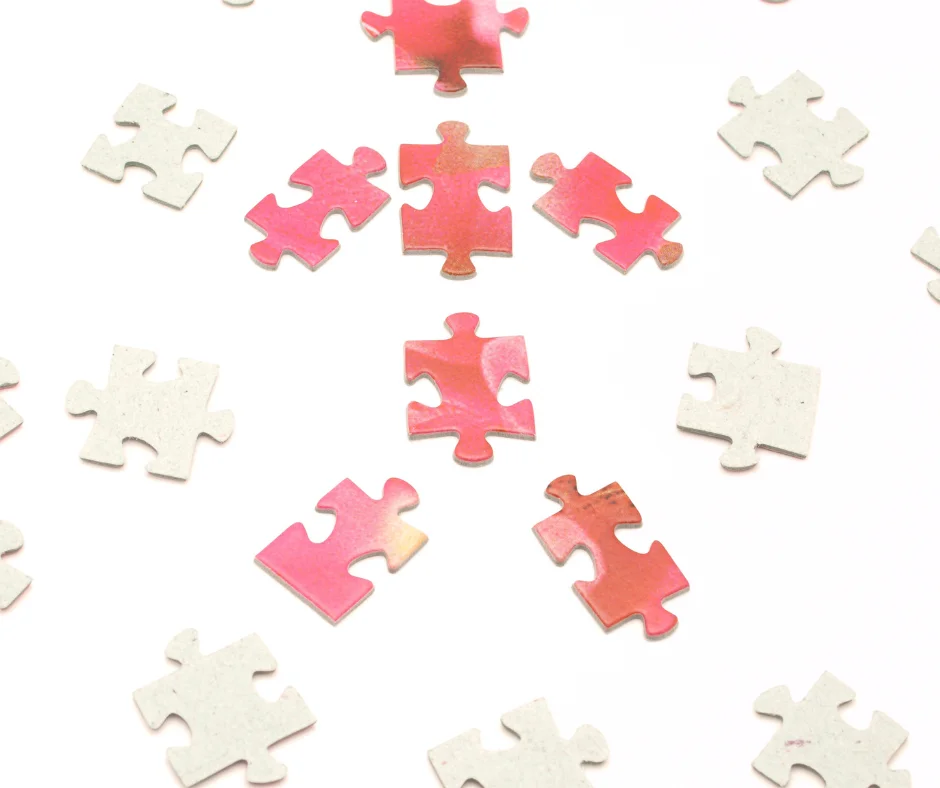Have you ever wondered why you can have a different relationship with the same person? One moment there is synergy and closeness, the next a feeling of distance, even dislike. We each have many different parts of our personality which interact (and sometimes clash!) with others at different points in our life. We can all experience such shifts in our relationships. These different parts of our personality can also influence our decisions and life choices without us being aware of them which does not always give us the results that we wanted.
In this blog we will explore why we behave the way we do; the role that the different parts of our personality play; and how we can develop our self-awareness to ensure that the parts of our personality that benefit us are driving our decisions.
Why do we behave in the ways we do?

Do you, like me, ever catch yourself saying something or behaving in ways that don’t reflect who you think you really are? For instance, losing your patience with a fellow motorist? Making a judgemental remark to a friend and immediately wishing you hadn’t?
My Dad gave me some great advice. He said that if I ever entered a room full of strangers, that I should look to talk with someone that I thought was least like me. He had observed that most of us, in similar situations, look to talk with someone who we think is like us. It makes us feel safe. He said that if I followed his advice, I would meet people who would have had different life experiences. I would learn from them, broadening my understanding of life. What great advice. Dad set me on a life’s journey of being curious about why we all behave in the ways we do.
A life-changing experience
Several years ago, I was invited to an international forum in Iceland, called The Spirit of Humanity. It drew together some remarkable people who are making huge contributions to helping humanity to understand itself and flourish.
Whilst there, I met trail blazer, Dr Richard Schwartz. Dick, as he is known to his friends and colleagues, is a remarkable psychotherapist who developed the internationally renowned method of psychotherapy which he named the Internal Family Systems (IFS).
The significance of this meeting?

Meeting Dick and learning about his theory, has deeply affected the way that I see myself and others. Dick opened my thinking to appreciate that our internal world is made up of many aspects of us, called parts. That we are not just one personality!
A part of our personality, perhaps may act as one of our life’s managers, who makes decisions that lead us on a particular path in life. I know I have one part who is a very strong professional manager, helping me to be successful throughout my career. I have another part who loves performing, supporting me when I’m giving presentations. Also, I have a more cautious part, that helps me to be prudent when making decisions.
We all have many parts of our personality, which develop mainly when we are young, as reactions to how we are experiencing life. They help us to cope, and all have positive intentions.
The parts of our personality are nourished by our values. Sometimes however, parts can be burdened by an event or on-going experience in our life. For instance, we think we are not likeable because we are called derogatory names at school. If not released, we carry these burdens throughout life, like heavy weights on our back. They affect the way we see the world and behave in it. However, Dick reminds us to remember that we are not our burdens. That the burdens can be released so that our parts can do their natural job.
You may care to pause reading for a moment to identify some of your own parts and the role they play in your life.
Our constant core: SELF
Now, I have some great news for you. Dick explains that although we can have many parts of our personality that make up our internal world, we also have a constant core of us that he refers to as Self.
Self is the authentic, non-judgemental you. The one who is the onlooker of your parts. You may experience the awareness of Self, when you are experiencing life being the best version of you. That is when our life is being influenced by self-energy and not overwhelmed by any of our parts.
How are these insights relevant to finding your Super North Star?
An overview of Dick Schwartz’s IFS gives us clarity, understanding and compassion for those aspects of our character that make up our personality. Such an understanding helps us to navigate our life more successfully.
In Compass for Life training, I take folk on a deep dive into the East Cardinal, which is Ethos. Ethos is about the spirit or character of a person, the culture of an organisation. Our character is underpinned by the values we live in our lives. Our values have an incredible role, as they underpin our character, which creates the energy that fuels our ability to achieve our Super North Star – our mission and purposes in life.
So, in thinking about our Super North Star and our values, we need to take time, perhaps as often as daily, to visit our internal world to check out which part or parts of our personality are making the decisions for us. Are they burdened parts? Is our Super North Star being driven by our authentic self or an aspect of our personality that has its own agenda?
For instance, being the MD of a company that puts profit above all other considerations, whilst pretending to implement sustainable practices. Such organisations usually have laminated values displayed in their entrance halls and on their websites, which do not represent their real culture – a “false” North Star.
Finding balance- my promise to you
If you spend some time thinking about, perhaps researching further what I’m sharing with you, you will benefit in all aspects of your life. You will find that you will balance living outside with living inside. You will get on with your life having clarity of purpose, whilst being mindful of how the quality of your internal family of parts affects both your thinking and behaviour. You will realise how parts of your personality may promote or limit your happiness and success.
5 ways to develop awareness of the different parts of our personality
- Give yourself some quality time, away from the usual demands of your life, to be introspective. Draw a map of those parts of you that seem to run your life. You may have parts that perform, manage, are overly critical, humorous, serious, sarcastic, kind, and so on.
- Enjoy getting to know your parts and the roles they play in your life. Ask yourself if any of them are too active and may stop you achieving your Super North Star.
- Notice times when you feel really comfortable in your own skin, when life is in flow and when there is harmony in your life. Is this when you are authentically you? How can you live more in this state of experience?
- Consider what strategies you need to employ, steppingstones, to ensure that you are living an authentic life. A life that isn’t distracted by goals that won’t bring satisfaction or long-term benefit.
- Lastly, make conscious those values that drive your thinking and behaviour. Consider turning up the volume on those that will enable you, both personally and professionally, to flourish.
Going forward
The charities, the Compass for Life Foundation, and my charity the International Values-based Trust (IVET Foundation), work to transform society by empowering individuals and organisations to work with integrity, altruism and authenticity.
I hope that in reading and reflecting on this blog, the ideas will help you to live an undivided life, which brings that authentic form of success that enables you to flourish and reach your Super North Star.
For more information about how the Compass For Life team can support you and your team to flourish and reach your Super North Star, please visit our homepage or get in touch.
